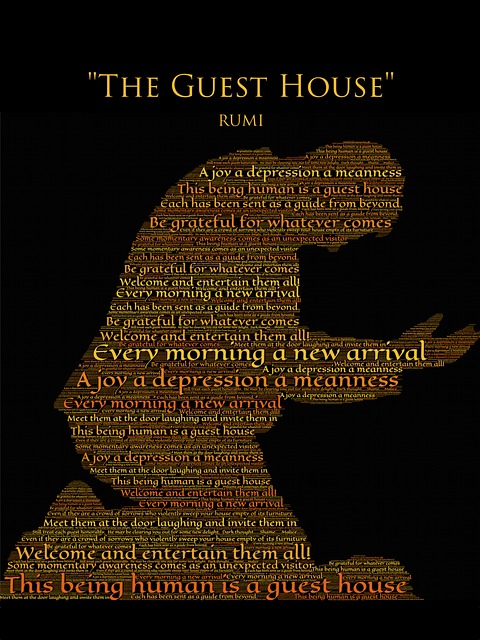Any human endeavor which calls on intellect and passion, which asks us to stand and at times to stand alone against hostility requires a spiritual practice. I am not saying that such endeavor requires religion or even a belief in the Divine. I am saying that when true human work requires much of us, as the work of social justice does, if we do not have a practice that sustains us, that brings us back to some interior place that we call “home” we stand the chance of losing ourselves, our direction and our hope in the midst of the work.
Rumi’s poem, The Guest House, copied below in translation by Coleman Barks, illustrates such a practice for me. If nothing else, it reminds me that if I am in any way moved by compassion to work to alleviate the suffering of others, I must find a way to practice compassion within myself. The worth and dignity that we see in others being abused is only possible, after all, because we know something of worth and dignity within ourselves. A spiritual practice, then, must at least be about knowing and loving our own worth and dignity.
Bob Patrick
The Guest House
This being human is a guest house.
Every morning a new arrival.
A joy, a depression, a meanness,
some momentary awareness comes
As an unexpected visitor.
Welcome and entertain them all!
Even if they’re a crowd of sorrows,
who violently sweep your house
empty of its furniture,
still treat each guest honorably.
He may be clearing you out
for some new delight.
The dark thought, the shame, the malice,
meet them at the door laughing,
and invite them in.
Be grateful for whoever comes,
because each has been sent
as a guide from beyond.
Rumi as translated by Coleman Barks
